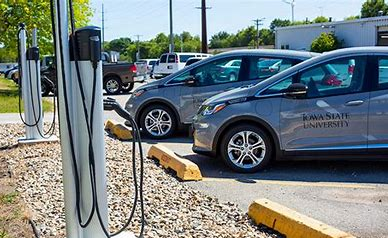Ghana’s education system has been grappling with numerous challenges that hinder students’ development and the country’s overall progress. Despite efforts to improve the quality of education, the system continues to face significant issues. In this article, we will explore the key problems plaguing Ghana’s education system and propose potential solutions to address these issues.
Ghana’s education system plays a crucial role in shaping the country’s future. However, it faces several challenges that need to be addressed urgently. This article aims to shed light on these challenges and propose effective solutions to revive Ghana’s education system.
Inadequate Infrastructure
One of the major challenges facing Ghana’s education system is the lack of adequate infrastructure. Many schools, particularly those in rural areas, suffer from overcrowded classrooms, insufficient furniture, and a lack of proper sanitation facilities. These resource deficiencies have a negative impact on the learning environment, hindering effective teaching and learning processes.
To address this issue, the Ghanaian government should allocate more funds towards building and renovating schools, especially in remote areas. Additionally, public-private partnerships can be encouraged to invest in educational infrastructure, ensuring a conducive learning environment for students.
Low Quality of Education
The quality of education provided in Ghana has been a concern for years. Many teachers are underqualified and lack the necessary training to effectively impart knowledge to their students. Outdated teaching methods and a rigid curriculum further hinder the development of critical thinking and problem-solving skills among students.
To improve the quality of education, comprehensive teacher training programs and continuous professional development should be implemented. These programs can help enhance the skills and knowledge of educators. Additionally, the curriculum should be regularly reviewed and updated to incorporate modern teaching methodologies, promote creativity, and foster critical thinking among students.
Inadequate Access to Education
Unequal access to education is another core factor contributing to the challenges in Ghana’s education system. Rural and disadvantaged communities often face barriers that prevent children from accessing education. Factors such as poverty, early marriages, and child labor increase the likelihood of children dropping out of school.
To tackle this issue, the government and relevant stakeholders should prioritize efforts to improve access to education for marginalized communities. This can be achieved through the establishment of more schools in remote areas, the provision of scholarships and financial assistance to needy students, and awareness campaigns to address cultural practices that hinder children’s education.
Examination Malpractices
Examination malpractices are a persistent problem in Ghana’s education system. Cheating during examinations not only undermines the integrity of the education system but also affects the credibility of certificates issued to students.
To address this issue, it is crucial to strengthen the examination processes and ensure strict enforcement of anti-cheating measures. This can involve the use of advanced technology in examination monitoring, increasing supervision during exams, and imposing severe penalties for those found guilty of malpractices.
Insufficient Funding
Insufficient funding is a recurring issue in Ghana’s education sector. Despite the government’s efforts to allocate funds to education, the budget may not be enough to adequately meet the system’s needs.
To tackle this problem, the government should prioritize education in itsbudget allocation and explore alternative sources of funding. Partnerships with international organizations and contributions from the private sector can provide additional financial support. Ensuring that education receives adequate funding is vital for sustaining and improving the quality of the system.
A Comprehensive Approach to Revive Ghana’s Education
Addressing the challenges in Ghana’s education system requires a comprehensive and multi-faceted approach. By tackling issues such as inadequate infrastructure, low-quality education, limited access to education, examination malpractices, and insufficient funding, the government can lay the foundation for a stronger and more effective education system.
By allocating more funds towards building and renovating schools, the government can improve the infrastructure and create a conducive learning environment for students. Comprehensive teacher training programs and curriculum updates can enhance the quality of education by promoting modern teaching methodologies and critical thinking skills.
Improving access to education for marginalized communities through the establishment of schools in remote areas and providing financial assistance will ensure equal opportunities for all children. Strengthening examination processes and enforcing anti-cheating measures will uphold the integrity of the education system.
Additionally, prioritizing education in budget allocations and exploring alternative sources of funding will ensure sustainable and adequate financial support for the education sector.
By implementing these measures, Ghana can revive its education system and empower its youth, leading to enhanced workforce productivity and driving socioeconomic development in the country.
FAQs
- Q: How can inadequate infrastructure affect students’ learning? A: Inadequate infrastructure, such as overcrowded classrooms and lack of proper facilities, creates a challenging learning environment that hinders students’ development and engagement.
- Q: What can be done to improve the quality of education in Ghana? A: Implementing comprehensive teacher training programs, updating the curriculum, and promoting modern teaching methodologies can help improve the quality of education in Ghana.
- Q: How can access to education be improved for marginalized communities? A: Improving access to education for marginalized communities can be achieved through the establishment of schools in remote areas, providing financial assistance, and addressing cultural practices that hinder children’s education.
- Q: Why is it important to address examination malpractices? A: Examination malpractices undermine the integrity of the education system and affect the credibility of certificates. Strengthening examination processes and enforcing anti-cheating measures are essential to maintain the system’s integrity.
- Q: What measures can be taken to ensure sufficient funding for education in Ghana? A: Prioritizing education in budget allocations, exploring alternative funding sources, such as international partnerships and private sector contributions, can help ensure sufficient funding for the education sector.
Conclusion
Ghana’s education system faces significant challenges, including inadequate infrastructure, low-quality education, limited access, examination malpractices, and insufficient funding. However, by adopting a comprehensive approach that addresses these issues, the government can revive the education system and pave the way for a brighter future.
Through investments in infrastructure, teacher training programs, curriculum updates, improved access to education, and financial support, Ghana can provide quality education to its students, equipping them with the skills they need to succeed in life. A well-functioning education system is crucial for the country’s progress and socioeconomic development.
















